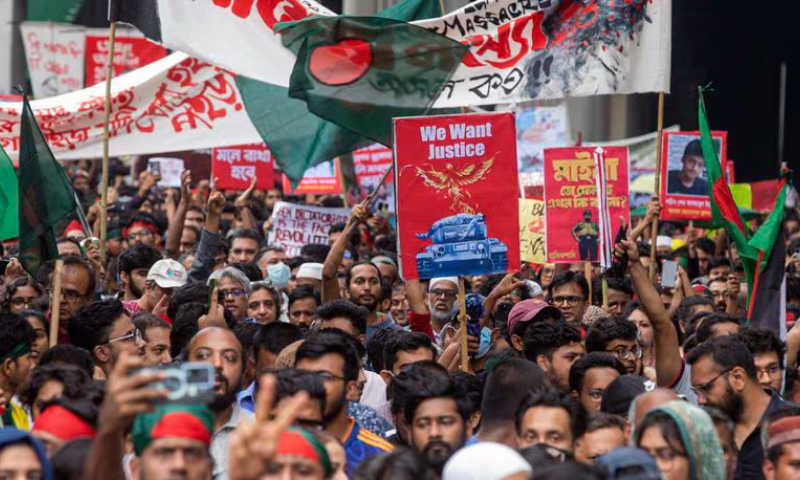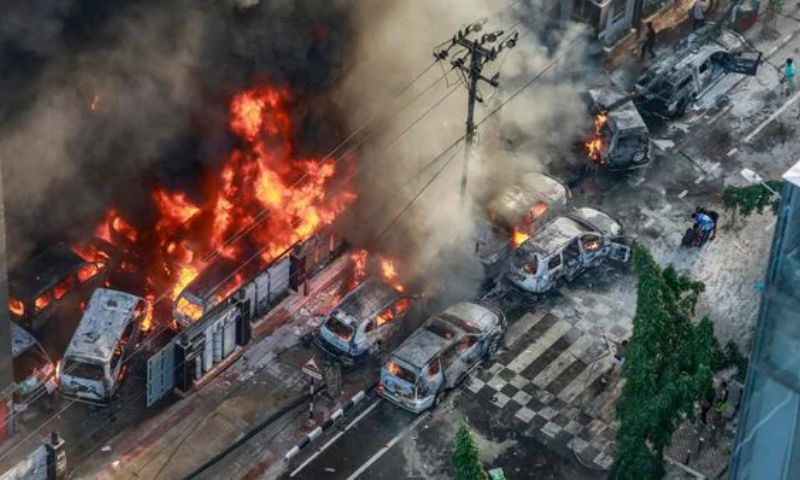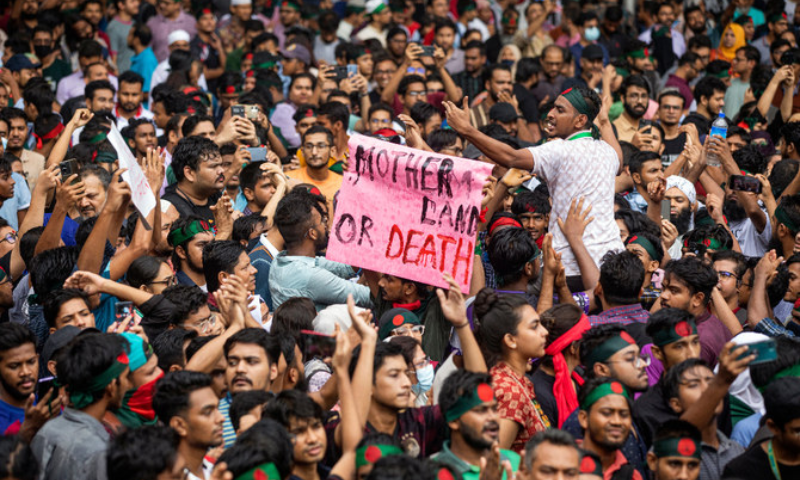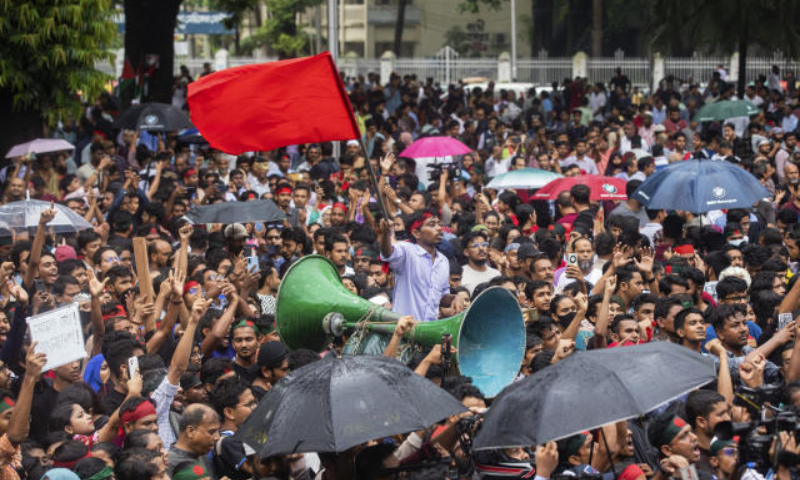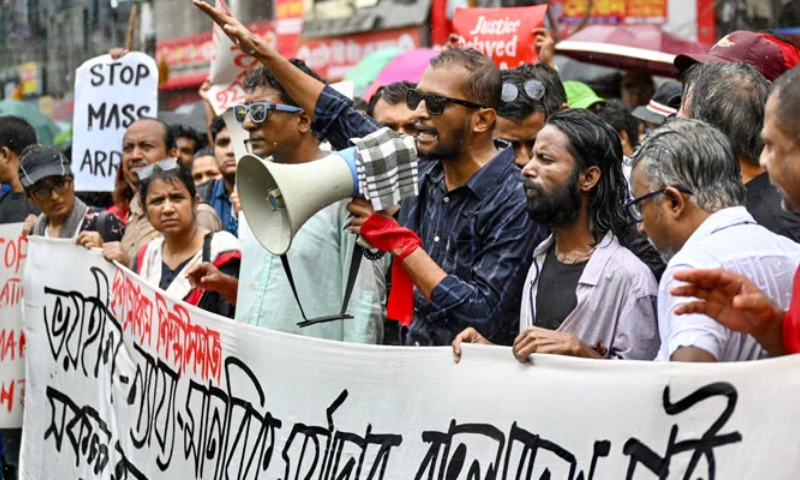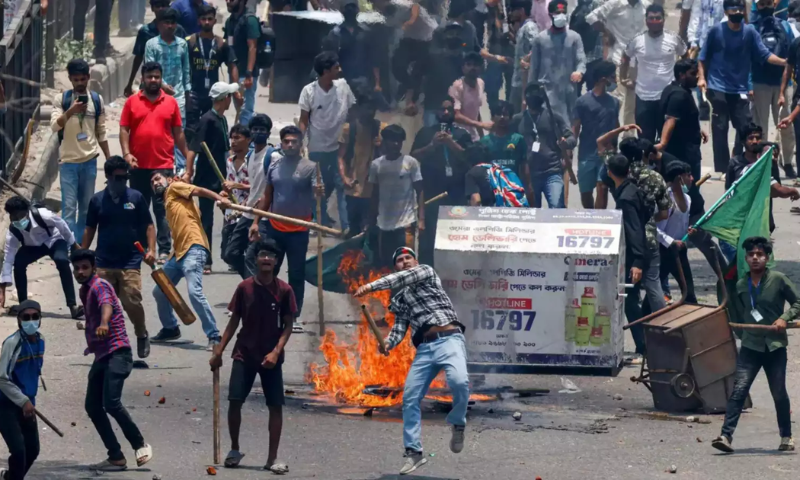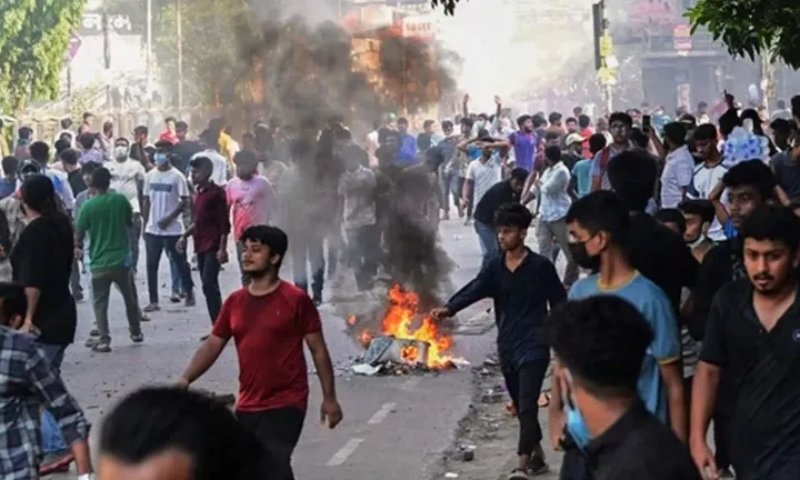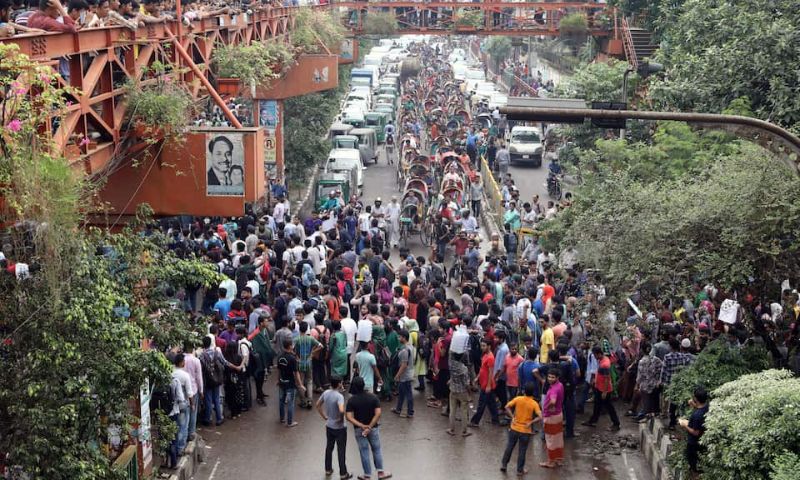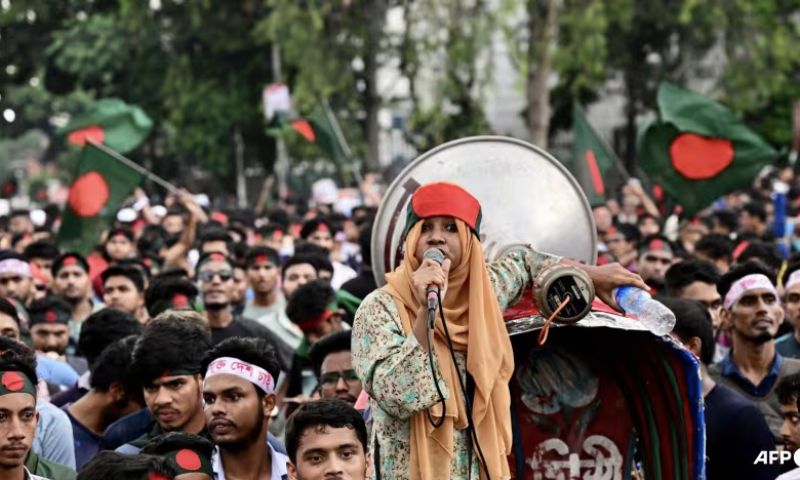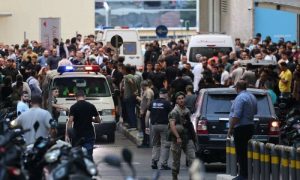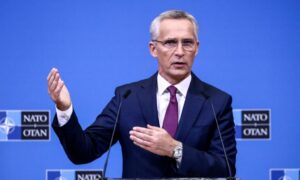DHAKA: Hundreds of thousands of Bangladeshi protesters demanding Prime Minister Sheikh Hasina resign clashed with government supporters, with at least 70 people on Sunday alone in one of the deadliest days since demonstrations began.
The protests, initially sparked by opposition to civil service job quotas, have evolved into a broader anti-government movement, with demonstrators now calling for the 76-year-old Hasina to step down. The death toll from the unrest has surged to at least 276, including 14 police officers who were killed in the latest clashes.
Sunday’s violence saw rival factions engaging in intense battles across multiple cities. Protesters used sticks, knives, and other weapons, while security forces responded with gunfire. The confrontation reached a particularly brutal climax in the northeastern town of Enayetpur, where protesters stormed a police station, resulting in the deaths of 11 officers, according to Bijoy Basak, a deputy inspector general.
In several cases, soldiers and police did not intervene to stem the protests, unlike the past month of rallies that repeatedly ended in deadly crackdowns.
Gunfire continued after dark as protesters defied a nationwide curfew and mobile internet access was severely restricted. The violence has transformed urban centers like Dhaka into battlegrounds, with widespread clashes reported in Shahbagh Square and other key areas.
Asif Mahmud, one of the key leaders in the nationwide civil disobedience campaign, called on supporters to march on Dhaka on Monday. “The time has come for the final protest”, he said.
The latest surge in violence follows a period of relative calm, during which soldiers and police largely refrained from intervening. The government has faced mounting criticism from various quarters, including former military officials.
Ex-army chief General Ikbal Karim Bhuiyan has publicly demanded the withdrawal of armed forces from the streets and condemned the government’s handling of the situation. He called for the accountability of those responsible for the unrest.
Some former military officers have joined the student movement and ex-army chief General Ikbal Karim Bhuiyan turned his Facebook profile picture red in a show of support.
“We call on the incumbent government to withdraw the armed forces from the street immediately,” Bhuiyan told reporters Sunday in a joint statement alongside other senior ex-officers, condemning “egregious killings, torture, disappearances and mass arrests”.
“Those who are responsible for pushing people of this country to a state of such extreme misery will have to be brought to justice”, he said.
READ ALSO: Clashes Erupt in Bangladesh As Protesters Demand PM Hasina’s Resignation
“The entire city has turned into a battleground,” said a police officer who requested anonymity, describing the chaos in Dhaka. Protesters have targeted ruling party offices and clashed with government supporters, further inflaming tensions.
The demonstrations have garnered support from a broad cross-section of Bangladeshi society, including prominent figures in the entertainment industry and garment sector manufacturers. The movement has been bolstered by the spread of rap songs and social media messages calling for solidarity and resistance against the government.
Hasina has ruled Bangladesh since 2009 and won her fourth consecutive election in January after a vote without genuine opposition.
Her government is accused by rights groups of misusing state institutions to entrench its hold on power and stamp out dissent, including through the extrajudicial killing of opposition activists.
Current army chief Waker-uz-Zaman reiterated the army’s commitment to supporting the people and maintaining order but did not explicitly endorse the protests. The unrest has exposed deep-seated frustrations with Hasina’s administration.
The protests initially centered around the reintroduction of a controversial quota system for government jobs, which was scaled back by the country’s top court. However, the demonstrations have since broadened to encompass wider issues of governance and political freedom, reflecting widespread discontent with Hasina’s long-standing rule.









